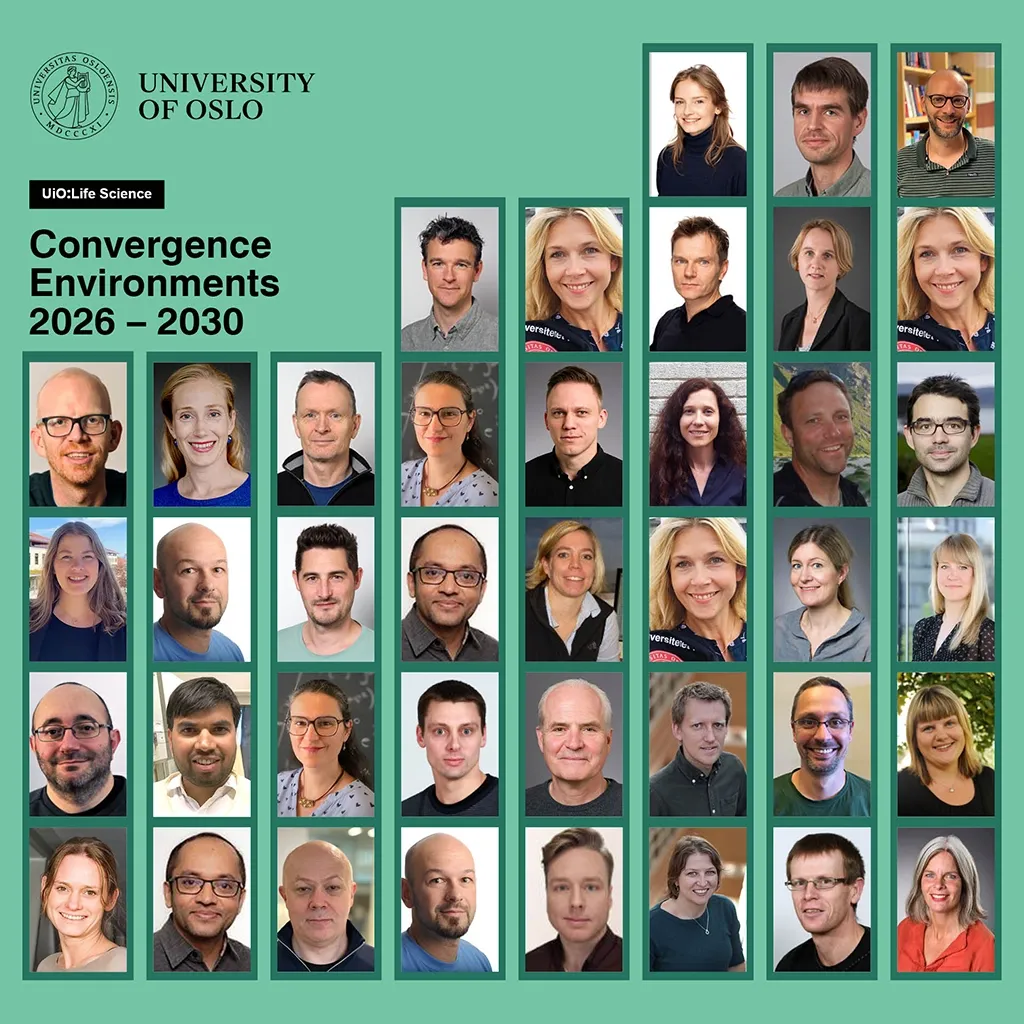
– This is our fourth call for convergence environments, and we have never received as many applications as we have now – a total of 51. We have high expectations for what the new convergence environments will achieve, states Carl Henrik G?rbitz, director of UiO:Life Science.
32 PhD and post doctor positions
In total, the eight convergence environments will receive funding for 32 PhD and postdoctoral positions over four years. These positions are affiliated with host units at five faculties of the University of Oslo and the Natural History Museum. This is the highest number of positions ever awarded by UiO:Life Science.
– With this allocation, we are making a significant contribution to the recruitment in interdisciplinary life sciences. In the long term, high expertise within the field of life sciences will strenghten our international competitiveness, says Carl Henrik G?rbitz.
Thorough application process
The call was announced in November 2024.?In January and February 2025, three thematic workshops were held.?In advance, the researchers indicated which topics they were interested in, after which they met for speed dating across disciplines. The deadline for submitting project proposals was in March 2025, and the deadline for the complete application was in May. The applications were assessed by an international review panel in two rounds before the board of UiO:Life Science made a final decision on 5 of November.
The new convergence environments 2026 – 2030
A Multidisciplinary Convergence Approach to Understanding and Supporting Neurodevelopmental Variability (NeuroPathways)
Will investigate how to understand and support individuals with neurodevelopmental conditions, with the aim of making society more inclusive.
Gene-Epigenome-Active Matter Nexus in Early Embryogenesis (GENESIS)
The purpose is to uncover how gene regulation and cell structures are integrated with fundamental physical principles of self-organization during early embryonic development.
Methods for knowledge-based biodiversity monitoring and management under uncertainty (BioM)
Will develop methods to model and govern biodiversity.
Read more
Targeting Cellular Biomechanics to block Tumour Cell Invasion (GLIOFORCE)
Will investigate the biophysical mechanisms important for the spread of cancer.
Capitalizing on Norwegian Health Data for Rapid Generation of Real-World Evidence on Effectiveness and Safety of Pharmaceuticals (UiO:RWE)
Will use Norwegian health data to generate real-world evidence (RWE) about the effectiveness and safety of medication use.
Hormonal contraceptives and mental health: A convergent, interdisciplinary approach (ContraMent)
Investigates how hormonal contraceptives affect women's mental health.
Peptides for Membrane Targeting and Synergistic Drug Delivery (PERMEATE)
Will improve the mechanisms for drug absorption and develop more effective treatments.
Unraveling Individual Variability to guide Prevention (Decoding addiction)
Will decode the molecular mechanisms of drug addiction.
Read more